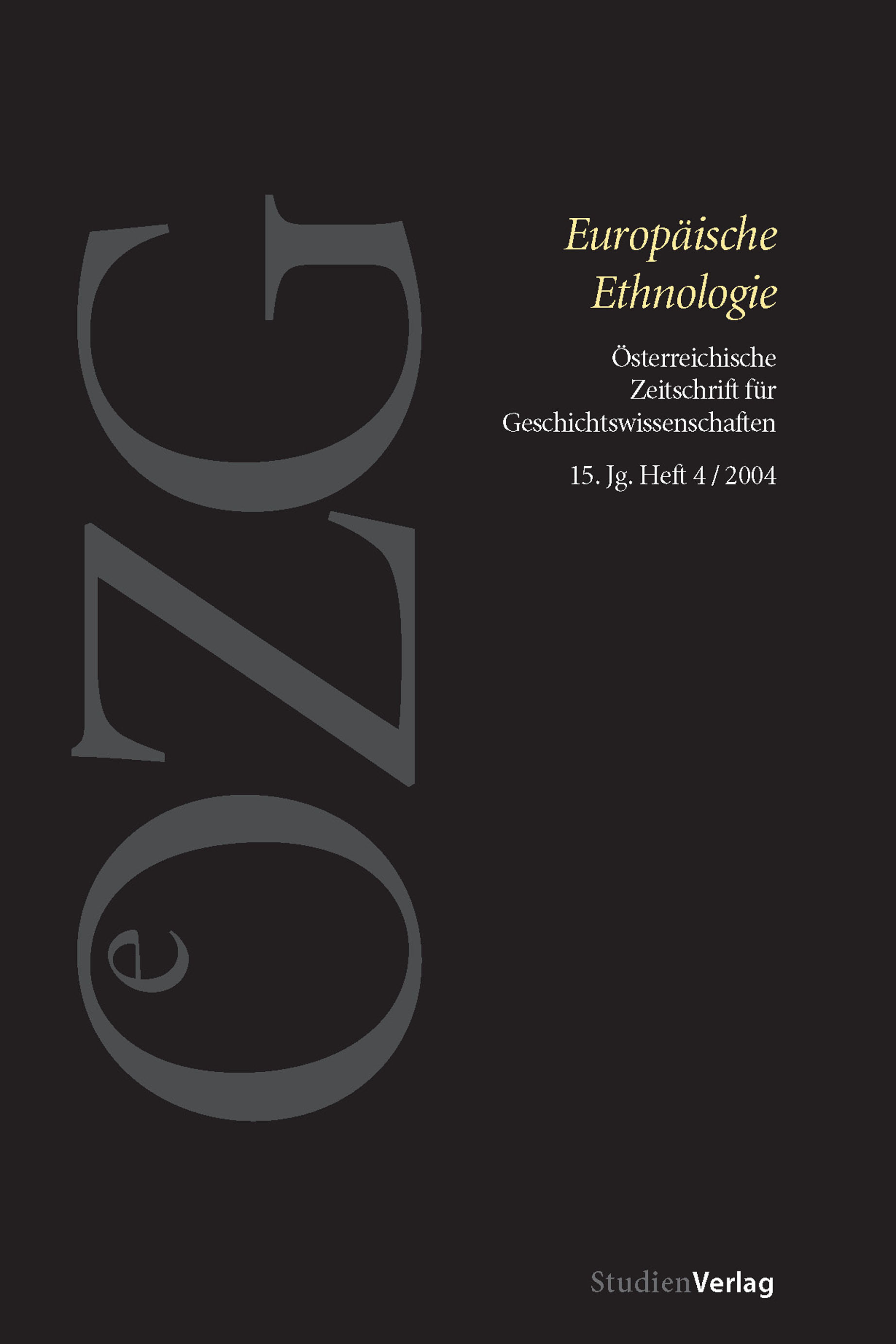European Ethnology. Diagnosis and Prognosis for a Volkskunde Embedded in the Cultural and Social Sciences
DOI:
https://doi.org/10.25365/oezg-2004-15-4-5Abstract
As a discipline, European Ethnology draws inspiration both anthropology, interested in the non-European and ›foreign‹ and from folklore, which concerns itself with ›native‹ European culture. As both are involved in studying everyday culture, this contribution argues that the two ethnologies should concede each other the similarities of their fields and approaches in order of complementarities. In addition, both utilize social scientific theories and approaches that have focused both thematically and interdisciplinarily on ›borderlands‹. European Ethnology thus can be understood as a holistic field, and as such it stands in productive opposition to the all-pervasive specialization of research found nowadays. Its systematically unsystematic nature reflects, so the argument, culture itself. This is also why field research and discourse analysis constitute the most important methodological approaches in European Ethnology.


